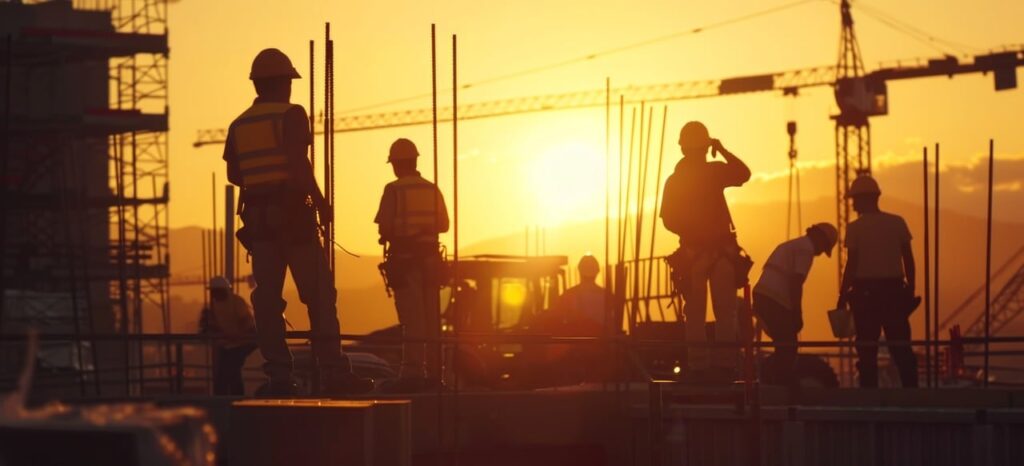
How to Choose the Right Centring Contractor for Your Project
Choosing the right centring contractor is critical to the success of any construction project. Whether you’re constructing a residential building, a commercial complex, or a large infrastructure, the centring work ensures stability and safety. Proper centring supports concrete structures during the construction phase, and any misstep can lead to costly delays, structural issues, or even accidents. In this guide, we’ll walk you through the essential factors you need to consider to select the best centring contractor for your project.
1. Understand the Scope of Your Project
Before you begin your search for a contractor, it is essential to clearly understand the scope and complexity of your project. Not every centring contractor is equipped to handle all types of construction work. Some specialize in residential projects, while others focus on large-scale commercial or industrial structures. Having a clear outline of your project requirements will not only help you communicate your needs effectively but will also allow you to narrow down your list of potential contractors who have experience with similar projects.
For instance, if you’re working on a multi-story commercial building, you’ll need a centring contractor with expertise in high-rise construction. On the other hand, if your project involves smaller, intricate structures, you might prioritize a contractor with experience in detailed, precision-based centring work. Understanding these specifics will help you learn how to choose the right centring contractor for your project.
2. Check Their Experience and Expertise
One of the most important factors to consider when selecting a centring contractor is their level of experience and expertise. Contractors who have worked on a variety of projects will have a deep understanding of different centring techniques, materials, and challenges that may arise during construction. A well-experienced contractor will know how to overcome common issues like material shortages, weather conditions, or site-specific complications.
To evaluate a contractor’s expertise, you should:
- Request their portfolio of completed projects.
- Look for references from previous clients.
- Ask about their experience with similar projects.
By doing this, you can determine if they have the specific skill set needed for your project. Experience is key when learning how to choose the right centring contractor for your project, as seasoned professionals can anticipate and address potential challenges more effectively.
3. Verify Credentials and Certifications
In addition to experience, it’s essential to verify the contractor’s credentials and certifications. Proper licensing and certification indicate that the contractor adheres to industry standards and follows safety regulations. A professional centring contractor should have the following:
- A valid construction license.
- Necessary safety certifications.
- Insurance coverage, including liability and worker’s compensation.
This not only ensures that the contractor is qualified but also protects you from potential legal issues or liability in case of accidents on-site. A contractor’s commitment to safety and regulatory compliance is a clear sign of professionalism, helping you confidently decide how to choose the right centring contractor for your project.
4. Assess Their Equipment and Technology
The construction industry has rapidly evolved, and so has centring technology. Contractors who invest in modern equipment and advanced tools can significantly enhance the quality and efficiency of their work. When selecting a centring contractor, inquire about the types of equipment they use and whether they keep up with the latest trends in construction technology.
Newer equipment often leads to more accurate measurements, faster project completion times, and reduced risk of error. A contractor using outdated or poorly maintained equipment might cause delays or even compromise the structural integrity of the project. Therefore, choosing a contractor who embraces modern technology ensures that your project will benefit from the latest advancements in centring techniques.
5. Evaluate Their Communication Skills
Good communication is crucial in any construction project. The right centring contractor should be able to explain complex technical details in a way that you can understand. They should be responsive to your questions, provide regular updates on the project’s progress, and be open to discussing potential challenges.
Before making your final decision, assess how the contractor communicates during the initial consultation. Do they take the time to listen to your concerns? Are they willing to offer solutions and alternative approaches? A contractor who prioritizes clear communication can prevent misunderstandings and ensure that both parties are aligned throughout the project.
6. Compare Pricing and Contracts
While cost should never be the sole deciding factor, it’s important to compare pricing among potential contractors. A reputable contractor will provide a transparent, detailed estimate that breaks down the costs of materials, labor, equipment, and any other expenses. Be wary of contractors who offer unusually low bids, as they may cut corners or use substandard materials, which can compromise the quality of the work.
At the same time, it’s essential to understand the terms of the contract. Make sure everything is clearly outlined, from payment schedules to project timelines and warranty terms. A well-drafted contract protects both parties and ensures that there are no surprises down the line.
